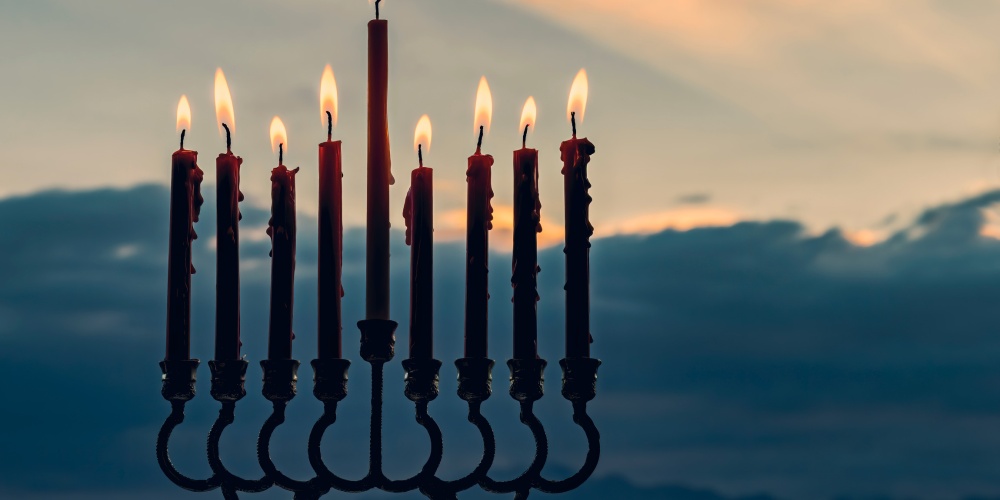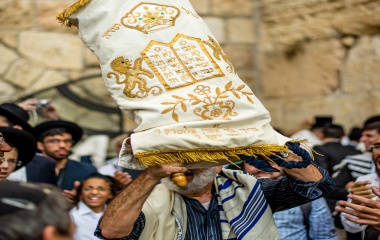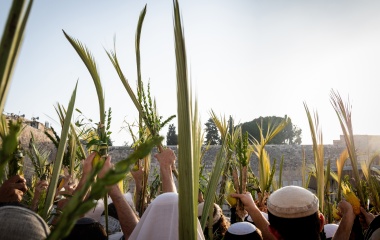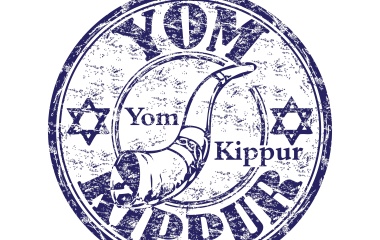
One of the painful realities of Jewish life is that the Jewish people are often judged by a double standard. What in other cultures is done with impunity often causes an uproar when it is the State of Israel doing the exact same thing. While frustrating and unfair, it is a burden we should be most proud of.
The nations of the world have an innate ability to grasp the uniqueness of the Jew. How else to explain the fixation of the world on a people who make up less than one-fifth of one percent of the world's population? It was Bilaam who best described the centrality and modesty of a Jewish home. What might be unnoticeable to us makes a deep impression on others.
The Jewish people have spent the last 3,500 years teaching the necessity for the highest of ethical standards, of the obligation to go beyond the letter of the law, of putting the needs of others on par with our own. Judaism has been a beacon of light in a world filled with much darkness. No wonder the rest of the world judges us by standards to which they may not even aspire.
As we recite Al Hanissim, we thank G-d for the victory of "the mighty into the hands of the weak, the many into the hands of the few, the impure into the hands of the pure, the wicked into the hands of the righteous and the immoral into the hands of those involved in Torah". While the miracle of the few defeating the many and the weak defeating the strong is readily apparent, of what relevance is the pure defeating the impure or of those who study Torah defeating the enemy? How does the fact that Jews study Torah make winning a war more miraculous?
A number of years back, I heard Rav Ahron Soloveichik, zt"l, explain that when the righteous and the pure fight a war, winning is truly that much more difficult. We will not and dare not use the tactics of our enemies: intentionally killing civilians, targeting women and children, and attacking hospitals, schools or places of worship. Jews would rather fight with honour and valour, even at great risk to their lives than adopt the immoral tactics of the enemy. And while fighting with a hand tied behind one’s back makes winning much more difficult, to do otherwise would make winning meaningless.
Unlike other Jewish holidays, the essence of Chanukah was unclear, leading the Talmudic Sages (Shabbat 21b) to ask "Mai Chanukah, What is Chanukah?” Rosh Hashanah and Yom Kippur are serious days of introspection; the Yamim Tovim of Pesach, Shavuot and Sukkot celebrate our national history and destiny; and Purim is a celebration of Jewish survival. But what is Chanukah? The seemingly obvious explanation for Chanukah, the victory in the war and the rededication of the Temple, might explain the historical narrative of the Chanukah story but does little to explain why we still celebrate it today. The miracle of the oil, the rededication of the Temple and the military victory were all rendered irrelevant with the destruction of the Temple in the year 70CE.
Yet the rabbis understood that Chanukah had a deeper message, that of "praise and thanksgiving", manifested in the singing of Hallel and the recitation of Al Hanissim. Chanukah teaches that we must maintain our dignity and morality in the face of the inhumanity that has so often surrounded us. While we must cry at that inhumanity, we are to be grateful that we have managed against all odds to thrive in any and all circumstances while trying to live up to a "double standard". The miracles of bayamim hahem, “in those days”, have much impact b’zman hazeh, “in these days”. And for this we are most thankful.
As we sing the Hallel and praise the miraculous events in our history, we also "call out from the depths unto G-d", and cry out, "Please, G-d, save us now". Unfortunately, the world has yet to internalize the message of Chanukah. Nonetheless, we end Hallel with "Give thanks to G-d, His kindness endures forever". In emulating G-d we, too, must ensure that our kindness endures forever, despite the hardships we may face.



